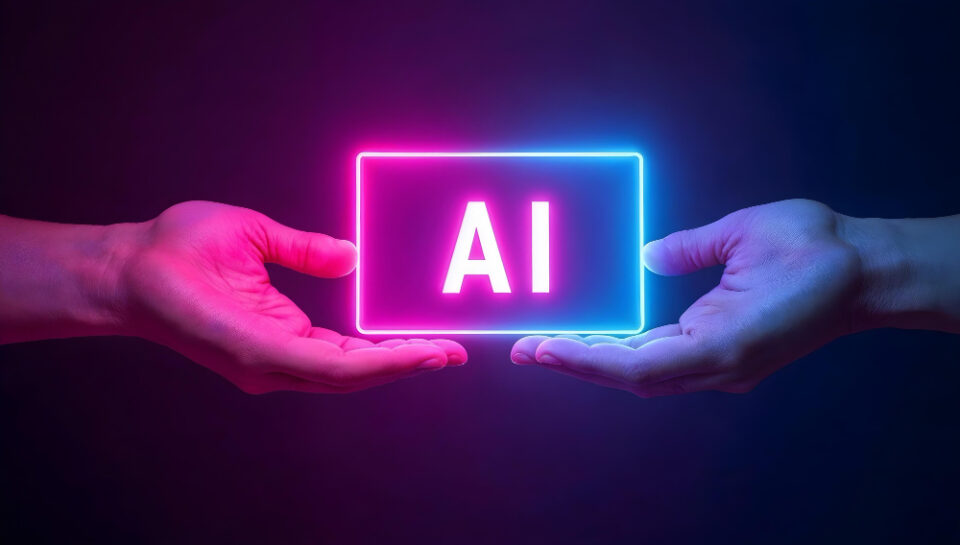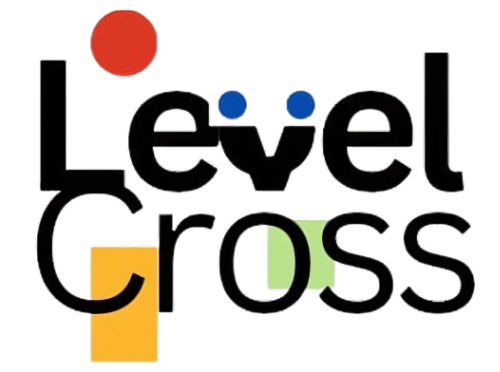
The New Frontier of Digital Marketing: AI in 2025
In the dynamic landscape of digital marketing, Artificial Intelligence (AI) is no longer a futuristic concept but a present-day reality. As we step into 2025, AI is set to revolutionize how businesses engage with consumers, optimize campaigns, and deliver personalized experiences. Here’s a deep dive into the latest updates and innovative approaches in AI for digital marketing.
1. Hyper-Personalization: The Future of Customer Engagement
One of the most significant trends in AI marketing for 2025 is hyper-personalization. Companies like Amazon and Netflix have set the bar high by delivering content tailored to individual preferences and behaviors. According to McKinsey, personalized experiences can increase sales by up to 15%. By leveraging AI, businesses can analyze vast amounts of customer data to create tailored experiences in real time. Whether it’s personalized product recommendations, targeted ads, or individualized email campaigns, AI will enable brands to deliver the right message to the right person at the right time.
Examples of Personalization Trends:
- Dynamic Pricing: Airlines and e-commerce sites are already using AI to adjust prices based on customer behavior and demand.
- AI-Generated Content: AI tools are increasingly used to generate content, such as personalized emails, landing pages, and even blog posts.
2. Enhanced Customer Insights Through AI Analytics
AI-powered analytics will continue to provide businesses with deeper insights into customer behavior and preferences. By utilizing machine learning and data mining techniques, companies can track and analyze consumer patterns in ways that were once difficult to achieve. These insights enable businesses to make data-driven decisions, refine their marketing strategies, and predict future trends more accurately.
Key Benefits of AI Analytics:
- Customer Segmentation: AI allows businesses to segment their audiences with higher precision, enabling more targeted marketing campaigns.
- Predictive Analytics: AI models can predict customer behavior, allowing companies to optimize campaigns based on future trends.
- Sentiment Analysis: AI can analyze customer feedback from various channels to gauge sentiment toward a brand or product.
3. AI-Powered Chatbots and Virtual Assistants
Chatbots and virtual assistants have been gaining popularity in recent years, and by 2025, they will become even more sophisticated. AI-driven chatbots are already enhancing customer service and automating sales processes. Companies like Domino’s Pizza and H&M use chatbots to interact with customers and process orders, providing fast, convenient support. By 2025, these AI assistants will be more intelligent and capable of handling complex queries across multiple platforms, including websites, messaging apps, and social media. The ability of AI to understand natural language will make these interactions more seamless and human-like, improving customer satisfaction and engagement.
Advantages of AI Chatbots:
- 24/7 Availability: AI chatbots provide round-the-clock support, ensuring customers can get help at any time.
- Multilingual Support: AI will enable businesses to serve global markets by offering multilingual customer support.
- Quick Response Times: By automating common queries, chatbots can significantly reduce wait times and improve the customer experience.
4. AI-Driven Ad Targeting and Automation
In 2025, AI will play an even greater role in revolutionizing advertising. Tools powered by AI already allow businesses to target ads more effectively by analyzing consumer behaviors and preferences. This trend will continue to grow, with AI taking on more decision-making processes in ad campaigns, optimizing bids, targeting, and creative elements in real time. AI will allow businesses to automate their advertising efforts, adjusting strategies and creatives based on performance metrics without manual intervention. Platforms like Facebook and Google already utilize AI for ad targeting, but in 2025, the level of automation and personalization will be far greater, leading to even more effective campaigns.
Key Benefits of AI in Advertising:
- Real-Time Ad Optimization: AI can automatically adjust ad campaigns in real time for better performance.
- Behavioral Targeting: AI enables hyper-targeted ads based on detailed consumer data, improving conversion rates.
- Improved ROI: With AI handling optimization, businesses can maximize their advertising budget and improve return on investment.
5. Ethical AI and Data Privacy
As AI becomes more integrated into marketing strategies, ethical considerations will grow in importance. Businesses will need to ensure they’re using AI in ways that respect customer privacy and maintain transparency. Data privacy concerns, algorithmic bias, and transparency in decision-making processes will come under greater scrutiny in the years to come. To avoid legal issues and maintain customer trust, businesses will need to adopt responsible AI practices. Leading companies like Microsoft and IBM have already started promoting ethical AI development, and by 2025, businesses will need to follow suit.
Best Practices for Ethical AI:
- Data Privacy: Protect customer data with robust security measures to comply with regulations like GDPR.
- Transparency: Ensure customers understand how AI is used in marketing, particularly regarding data collection and decision-making processes.
- Bias Mitigation: Regularly audit AI algorithms to identify and eliminate any biases that may affect fairness and equality.
6. GenAI and AI-Generated Content: Creativity Without Limits
One of the most disruptive advancements in 2025 will be the massive adoption of Generative AI (GenAI) in advertising content creation. GenAI tools are already transforming how brands produce ads, texts, images, and personalized videos. According to the “25 in 2025” report by Horizon Media, the fusion of data, AI, and personalization will create an ecosystem where each campaign is more agile, precise, and adapted in real time to changes in consumer behavior.
Applications of GenAI in Marketing:
- Dynamic Creative Optimization (DCO): Ads that automatically adapt to the user based on their preferences and real-time context.
- Automated Content Creation: AI-generated ad copy, images, videos, and audio tailored to each audience segment.
- Conversational Advertising: Advanced chatbots and virtual assistants offering hyper-personalized interactions.
7. Extreme Personalization: AI as the Engine of Hyper-Segmentation
2025 will be the year of hyper-personalization, where ads will no longer be generic but will evolve into individualized experiences thanks to the combination of big data, AI, and machine learning. Brands will be able to offer hyper-segmented recommendations based on users’ shopping habits, online browsing, and interaction history.
Notable Innovations:
- Real-Time Advertising: Ads will dynamically adjust based on the user’s context (location, weather, emotional state, etc.).
- AI-Driven Dynamic Pricing: AI will determine prices based on demand, competition, and the customer’s purchase history.
- Integration of IoT and Smart Devices: Smart devices like watches, TVs, and voice assistants will offer ultra-personalized ads and recommendations.
8. Retail Media and the Convergence of Advertising and Commerce
Marketing in 2025 will be strongly influenced by the expansion of retail media, where giants like Amazon, Walmart, and Mercado Libre will consolidate their advertising platforms within their digital ecosystems. Advertising within marketplaces and online stores will become a key channel for brands, enabling better ROI measurement and more efficient integration with omnichannel marketing strategies.
Prominent Trends in Retail Media:
- Shoppable Media: Advertising will be interactive, allowing purchases directly from ads in videos, social media, and live streams.
- Predictive AI in E-commerce: Algorithms will anticipate what users want to buy before they even search for it.
- Greater Integration of AR and VR: Augmented reality will allow consumers to visualize products before purchasing, improving conversion rates.
9. The Future of Content Marketing: Authenticity and Credibility
Content marketing will also evolve, moving away from mass strategies and focusing on specific niches and communities. The report highlights that consumers are tired of traditional advertising and seek content that reflects values and authenticity. This translates into:
Key Shifts:
- Micro-Communities and Subculture-Based Marketing: Advertisers will focus on niche communities like gaming, fitness, urban art, etc.
- Integration of UGC (User-Generated Content): Brands will rely more on content created by real users to build credibility.
- Influence of Creators and AI-Generated Influencers: Virtual influencers and generative AI will redefine influencer marketing.
10. Ethics, Privacy, and Regulations: Challenges for Marketing in 2025
As AI and big data gain traction, privacy and ethics in data usage will become a priority for regulators and consumers. Governments are adopting stricter positions on digital advertising, demanding greater transparency and data protection.
New Regulations Impacting Marketing:
- Restrictions on Cookie Usage: Strategies will need to rely more on first-party data (brands’ own data).
- Increased Focus on Data Privacy: Advertisers will need to prioritize data security and compliance with regulations like GDPR.
- Ethical Use of AI: Brands will have to ensure that AI and machine learning algorithms are used ethically and transparently.
Conclusion: Embracing the AI Revolution in Digital Marketing
The future of digital marketing is undeniably intertwined with AI. As we step into 2025, businesses that embrace AI will have a significant competitive advantage. From hyper-personalization and AI-driven ad targeting to the ethical use of data and the rise of GenAI, the possibilities are vast. However, with great power comes great responsibility. Businesses must navigate the ethical and regulatory landscape carefully to build trust and maintain customer loyalty.
By leveraging AI, businesses can create more engaging, personalized, and effective marketing strategies. The key to success will be a balance between innovation and responsibility, ensuring that AI is used to enhance the customer experience without compromising their privacy or trust.
As we look ahead, the future of digital marketing is bright, dynamic, and filled with endless possibilities. Embrace the AI revolution, and watch your digital marketing efforts soar to new heights.






